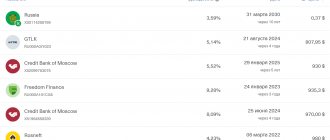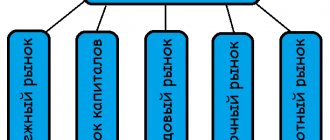What is the essence of the document?
The new law regulates relations arising during the issuance, accounting and circulation of digital financial assets, the specifics of the activities of the operator of the information system in which digital financial assets are issued, and the operator of the exchange of digital financial assets, as well as relations arising during the circulation of digital currency in the Russian Federation.
It is worth noting that the text of the law was significantly adjusted during its preparation for the second reading in the State Duma. From it, for example, concepts such as “mining” and “token” were removed, and provisions on administrative and criminal liability were also excluded.
How and what taxes need to be paid on mining and trading cryptocurrency in Russia
Everyone is required to pay taxes on cryptocurrency. Mining tax is the same. And this will be controlled very strictly. Reporting regarding cryptocurrency is also being introduced.
And now in more detail: if you are engaged in mining, buying or selling cryptocurrency, this is nothing more than an entrepreneurial activity. You can read more about this in the Civil Code (link below). But if you systematically receive income, then your activity is entrepreneurial. This means you are required to register as a taxpayer, entrepreneur, or create an organization and pay taxes .
If desired, the tax service will be able to hold you accountable without any problems if you systematically receive income. If you are involved in cryptocurrencies professionally, it is better to register as an individual entrepreneur. The maximum prison sentence for tax evasion is 5 years. Choose a simplified 6% and sleep well.
Tax must be paid on any income. If you are an organization (legal entity) and are engaged in the purchase and sale of cryptocurrency or its mining, then you will pay income tax, and if you are an individual or individual entrepreneur, you will pay personal income tax on it. If the amount of income is more than 5,000,000 rubles, the tax amount is no longer 13% but 15% for individuals. And if an individual entrepreneur, it is 6% depending on the tax regime.
How to calculate tax
It's simple, income is expenses. You need to prove the fact of purchase: either an offer document on the website, or a payment document. Those. We need proof that you transferred money for cryptocurrency.
If cryptocurrency is property, you can take advantage of the property deduction as an individual, and if an individual entrepreneur, you can take advantage of the 20% professional deduction.
Mining expenses (computers, electricity) can be deducted.
What is cryptocurrency in Russian accounting:
- On account 41 it is listed as goods.
- At 58 - as a financial investment.
In any case, cryptocurrency is an asset. The accounting policy must be stated either as a product or as a financial investment.
As property, cryptocurrency is not subject to property tax and is not subject to VAT. If you make a sale or purchase, it does not need to be revalued. If you bought at a certain price, but it has changed, then you do not need to pay any additional taxes on it.
Taxpayer responsibilities:
- Report ownership of cryptocurrencies;
- Pay tax on income when exchanging cryptocurrency for rubles.
Cryptocurrency Ownership Report
According to the law, citizens must submit a report if the amount of receipts or write-offs of cryptocurrency is 600,000 rubles or more. We are talking not only about the withdrawal of cryptocurrency into rubles, but also about the receipt of cryptocurrency to the wallet. The taxpayer must report even when he has traded or mined such an amount. And it doesn’t matter whether he took her out or not.
Many questions arise here: what is considered income, how to fix the exchange rate, how to take trading into account, and many others. There is no clear answer to these questions yet; we can only wait for clarification from the responsible authorities.
According to the law, you need to report your cryptocurrency ownership once a year. No later than April 30 of the following year from the reporting year. The first reporting year adopted is 2022. For the first time, Russians need to do this before April 30, 2022.
Payment of taxes on income received when exchanging cryptocurrencies for rubles.
A tax liability arises only at the time of receipt of rubles and only on amounts received in rubles. There can be any amount in your wallet, but you don’t need to pay taxes until you withdraw it.
There is an opinion that taxes do not need to be paid if the amount for the year does not exceed 600,000 rubles. But lawyers argue that this opinion is wrong. Taxes must be paid in any case if you receive income.
If you mine or trade cryptocurrency and withdraw it into rubles, then the entire amount will be considered your income. If you bought a cryptocurrency and converted it into rubles after the exchange rate increased, then the difference between the purchase and sale will be considered income. The main thing is to document the fact of purchase.
How will the issuance, accounting and circulation of digital financial assets be carried out?
The rights certified by the DFA will accrue to their first owner from the moment a record of the transfer of the DFA to him is entered into the system. These entries can be made by individual entrepreneurs and legal entities. The type and scope of rights that are certified by the DFA must be specified in the decision on their issue.
DFAs are accounted for by the system in which they are issued. As a general rule, records of DFAs will be able to be entered or changed at the direction of the person who issued these assets, as well as their owner.
The Bank of Russia will be able to determine, in particular, the characteristics of such DFAs that only qualified investors have the right to purchase.
Fines and liability for trading and mining cryptocurrency in Russia
If you fail to report your possession of cryptocurrency, the fine is 50,000 rubles plus 10% of the maximum amount in fiat. If the tax is not paid, you will have to pay a fine of 40% of the unpaid tax and the tax itself. If you receive transfers of up to 50,000 rubles per month, the tax authorities and banks should not be interested in you. This will be an amount of up to 600,000 per year.
Do not perform manipulations with the card that may arouse suspicion towards you:
- Systematic receipt of transfers from different persons or one person.
- Withdrawal of cash immediately after receipt of money on the card (within one day).
- The client does not make debit transactions using the card, and withdraws all incoming transfers in the form of cash.
- Transit operations, after which the client immediately sends money to another person.
Always save receipts and screenshots of transfers, offer documents and other supporting items of your transfer.
Link to the law - https://publication.pravo.gov.ru/Document/View/0001202007310056?index=106&rangeSize=1
How does the law define digital currency?
The law uses another term, “digital currency,” instead of the usual term “cryptocurrency.” It is characterized as a collection of electronic data (digital code or designation) in the system. These data may be taken as an investment or a means of payment other than a monetary unit.
In relation to digital currency, as a general rule, there is no person obligated to each holder of such electronic data.
It is also worth noting that some laws have been amended to recognize digital currency as property. This applies, in particular, to laws on bankruptcy, anti-corruption, and enforcement proceedings. It turns out that digital currency can be sanctioned.
Cryptocurrency from the point of view of taxes and accounting in Russia
On January 1, 2022, Federal Law No. 256-F3 “On digital financial assets, digital currency and amendments to certain legislative acts of the Russian Federation” (“DFA Law”) came into force. This law divides cryptocurrency into two types:
- A cryptocurrency that does not have a so-called obligatory entity;
- Cryptocurrency on which taxation is imposed on the issuer or organization.
Digital currency (“DC”) includes: BTC, ETH and many other coins that are issued on the blockchain. Digital currency is considered property under bankruptcy law.
Digital financial assets (“DFA”) are digital rights, which, among other things, include:
- monetary demands;
- the ability to exercise rights under equity securities;
- rights to participate in the capital of a non-public joint-stock company.
The main difference between a DFA and a CV is the presence of an issuer, that is, a person who bears obligations to the owner.
If we talk about DFAs, then these responsible persons must be on the register of the central bank.
The main thesis of this law is that digital currency cannot be used to pay. The paradox is that payment is one of the main purposes of cryptocurrency, but you cannot pay with it. Crypto can be stored, bought and sold on the exchange. This discrepancy poses serious problems for taxpayers.
If you gave or transferred cryptocurrency to another person, this action may be reclassified as a purchase or sale.
If the tax office wants to put pressure on you by reclassifying your transactions, then it is simply impossible to protect yourself from this. Thus, the tax office has every opportunity to clamp down on those they don’t want.
If you decide to mine or trade cryptocurrency, we recommend the Binance exchange for these purposes, register using this link. This is both an exchange for cryptocurrencies and a reliable pool for mining. At the same time, it is the only one in Russia where you can easily withdraw money to bank cards of all Russian banks, as well as to electronic money systems such as Qiwi and others.
How to build a mining farm without overpaying for expensive equipment.
What are the features of digital currency circulation?
The law prohibits accepting payment for goods, works and services in digital currency. This applies, in particular, to Russian legal entities, as well as individuals who are actually in Russia for at least 183 days over the next 12 consecutive months.
These persons will be able to defend their claims related to the possession of digital currency in court only if they have informed that they have this currency and have made transactions with it. The procedure for informing will be fixed in the legislation on taxes and fees. It is also prohibited to disseminate information about the offer and (or) acceptance of digital currency as a method of payment for goods, work and services.
What can you do with cryptocurrency in Russia
Cryptocurrency cannot be used in any calculations or purchased with it. But it can be bought, sold, and mined. The law does not prohibit this.
In “home mining”, you don’t need to pay anything except income taxes. But if you bought a farm from a factory, an industrial enterprise, and invested in it, then you are required to pay real (fiat) money for it. But no one has the right to take a percentage of your cryptocurrency.
There are more questions than answers:
- Is it possible to exchange currency for something else in the form of barter, if it is property;
- Is it possible to give an interest-free loan?
- Is it possible to introduce cryptocurrency into the authorized capital;
- What to do with collateral for cryptocurrency.
What is RAKIB
Russian Association of Crypto Industry and Blockchain official website https://racib.com.
Created in 2022, the public organization is the largest in Russia promoting cryptocurrencies and blockchain technologies.
One of the latest initiatives of the association is the idea of creating a Russian pool, allowing Russians to obtain self-employed status and mine cryptocurrency absolutely legally. It is proposed to introduce a simplified taxation system, according to which the miner of crypto coins will pay 3-5% of the amount when exchanging tokens into rubles. This will allow more than 350 thousand people to leave the gray zone, provide guarantees to cryptocurrency users and replenish the budget through tax revenues.
A positive solution to the issue of mining could lead to a serious boost to this business on the territory of the Russian Federation, because now many investors are afraid to invest serious funds due to legislative uncertainty.










